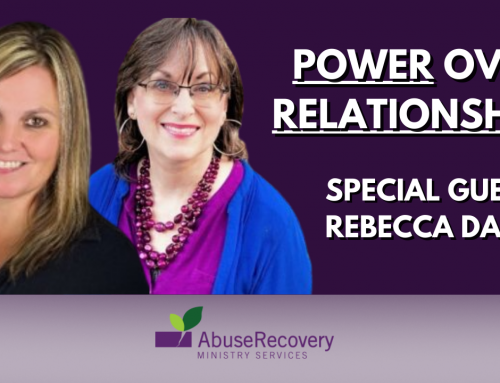With the education now available in the media and online, people are much more aware of narcissistic people. In fact, all people who are abusive show narcissistic tendencies. But not everyone would be classified with a Narcissistic Personality Disorder. The Overt Narcissist is often grandiose in their gestures and sense of self-importance. These are classic narcissists, and they’re the poster child for Narcissistic Personalities. However, the Covert Narcissist is the more damaging and dangerous type. They’re harder to identify and can lure people in by appearing to be the victim. They are more introverted, and the signs of their narcissism can often be mistaken as personality quirks. If you look carefully and honestly, you’ll see that their motivation is primarily controlling others.
This is a short guide on how to recognize and deal with controlling behaviors from a covert narcissist.
Causes of Covert Narcissism:
- Genetics
- Childhood trauma
- Verbal or sexual abuse
Signs of Covert Narcissism
Keep in mind that just because someone exhibits one of these signs, doesn’t automatically mean they’re a covert narcissist. A covert narcissist may have only a few of these traits, or most of them. It varies. In cases of domestic abuse, many or all of these signs are present.
narcissist. A covert narcissist may have only a few of these traits, or most of them. It varies. In cases of domestic abuse, many or all of these signs are present.
- Extreme Self-Interest. We all have a certain level of self-interest. But the covert narcissist is only interested in controlling and exerting power over others.
- A Sense of Entitlement to Special Treatment. The narcissist will often perceive insults that didn’t actually happen. Because they believe they deserve special treatment, they’ll act out in controlling ways when they are offended.(1)
- A Constant Need for Admiration. If you do not admire him/her and say so or act like it, you will not be in a narcissist’s circle of friends.
- Self-Serving Humility. They are humble only when it benefits them in some way.
- An Unrealistic Sense of Self-Importance/Secret Grandiosity. Self-importance is not the same as self-esteem. People with covert narcissism actually have a very low self-esteem. They may appear shy, meek, or self-conscious. On the inside, they feel a deep sense that they’re far superior. (2)
- Difficulty Forming Meaningful Relationships. Because of their superiority complex, they find it difficult to be vulnerable with “inferiors”. They find it hard to build meaningful bonds, and refuse accountability for their actions.
- Lack of Empathy. They don’t truly care for others. They care only what they can gain from others. (2)
- Quick-Tempered. They are quick to blame others when things go wrong.
- Never Accepts Blame. Even when the blame obviously belongs to them. Will adopt an attitude of self-righteousness. (“If you’d have listened to me, things wouldn’t have gone wrong.”)
- Avoids Social Events. This is due to a fear of comparing themselves with others and coming up short. So they choose to isolate instead.
- Self-Isolation for Long Time Periods. They isolate because no one can live up to their unrealistic expectations. Also because of their fear of being held accountable for their actions.
Controlling Behaviors Used by the Covert Narcissist
- Monopolizing Conversations. They may dominate the conversation. They may even lose interest when the conversation doesn’t revolve around them.
- They’ll Interrupt. They hijack a conversation or steal the control of the conversation away from somebody else.
- Unnecessary Criticism. When you give them a gift, they may find reasons why the gift isn’t ideal.
- Inject criticism of Others into Conversation. They may find a flaw in anything and any situation.
- Dismissive Remarks. Your opinion, thoughts and feelings do not matter and they will voice this.
- Seemingly Unaffected by Everything/Everyone Else. They may say things like, “Well I don’t care about that anyways”. This is a defense mechanism. Embracing the identity of victimhood, they then feel justified in their own apathetic attitude towards you and your preferences/opinions.
- The Silent Treatment. When something is not going the way they want it to, they implement the Silent Treatment as punishment.
- Stonewalling. When things aren’t going the narcissist’s way, or they perceive a slight against them, they’ll shut down and become emotionally distanced. They may also use isolation as a way to convey the unimportance of your presence.
- Gaslighting. The narcissist denies something ever happened, or insists that you agreed to something you did NOT agree to. Or, they work on convincing you that you are crazy and that things did not happen the way you think they did.
Appropriate Reactions to Controlling Behaviors
If things get hostile or you feel unsafe, leave the situation. Protecting yourself should be your main priority. You can calmly say “I’m here to talk this through once you’ve calmed down”. You could just quietly leave in the middle of their fit/rant. Remember: the narcissists goal is to control you to do what they want.
In Response to Monopolizing Conversations
If you’re in a conversation with them and they change the subject and you weren’t ready to move on, innocently say “You changed the subject!” And then revert back to your original subject. If they try and interrupt a conversation in order to take someone else’s attention from you OR if they jump into a conversation you and someone else are having, say “We’ll finish our conversation and then be right with you.”
In Response to Unnecessary Criticism
If you give the narcissist a gift and they criticize it, say “I chose to give you this gift because it made me think of you. You can choose to accept it or reject it. It’s up to you.” Make it clear that being critical is a choice. You could also ask “Why are you choosing to criticize right now?” If they inject criticism into a conversation, simply say “that’s not what we were talking about”. When they try again, repeat yourself. For a third attempt, shut down the conversation. They can choose to criticize, but you can also choose not to converse with them if they do this.
In Response to Dismissive Remarks
When they say, “I don’t care what people think about me.” Say, “when I find myself saying that, it’s usually not true.” And then drop it.(3) When they dismiss your input on a matter, say “That’s your opinion.” And then drop it. Don’t argue your point.
In Response to The Silent Treatment
Leave.
If they’re sitting there not giving you any kind of acknowledgment, don’t waste your time. Move on to another task, or a conversation with someone who will respond to you.
The narcissist will want to forget about their stonewalling. They’ll want to return to normal without being held accountable. Don’t let them. When they approach you next, or when it seems as though they’ll talk to you, ask if they’re ready to talk about what happened earlier. Say “are you aware that you shut down earlier? That makes me feel like you don’t value my opinions.”
In Response to Gaslighting
When you can, communicate with them in writing. That way when they say “I never agreed to that”, you can confirm that they did agree to that. If they further deny, say “I’m not debating this with you” and walk away.(3)
Things to Keep in Mind
- Don’t expect them to change. You’ll just be disappointed. Focus more on your own reactions to the covert narcissist. Focus on your own heart, and prevent bitterness and resentment from taking root.
- Don’t argue or try to reason with them. There isn’t any logic to be found in their control tactics. It isn’t about logic and reason; it’s about power and control.
- Dwell on positivity. When you’re not around the narcissist, don’t dwell on your frustrations with them. If they learn that you are focusing any thoughts (even negative ones) on them, it fuels their behavior. (2)
- Set boundaries and stick to them. If they try and use controlling behaviors, enforce a consequence. For example, if they criticize you/a gift/your kids/your spouse, respond with these recommendations and take yourself out of the situation. If there aren’t clear negative consequences to their controlling behavior, they’ll never have a reason to stop. (2)
- Recommend treatment. When the time is right, kindly and gently recommend seeing a counselor or therapist. If you believe that someone you love is a Covert Narcissist, it’s important for them to receive an official diagnosis from a health professional. A self-diagnosis, or one from a loved one, is not adequate. (2)
- Lastly, be safe. If tensions escalate and you feel unsafe, remove yourself from the situation. Your safety should be your main priority.
Sources
1. Brazier, Y. (2019, February 19). Types of personality disorder. Medical News Today. https://www.medicalnewstoday.com/articles/192888#dependant_personality_disorder
2. Patterson, E. LPC. ChoosingTherapy.com. (2021, May 20). 8 Signs of a Covert Narcissist & How to Respond. Choosing Therapy. https://www.choosingtherapy.com/covert-narcissist-signs/
3. Hammond, M. C. S. (2016, January 29). How to Handle Controlling People. Psych Central. https://psychcentral.com/pro/exhausted-woman/2016/01/how-to-handle-controlling-people#1
by Annalise Harp







Katie McMurray from Batavia checking in!
Hi Katie McMurray! I’m from Geneva!
I don’t understand how people can use and abuse others for years and still play the victim. They must have some kind of conscious right? or do they really just lack real emotions?
Playing the victim is a very common tactic of most abusers. It takes the attention off of themselves. As long as they are blaming someone else, they don’t have to be concerned that they themselves are the problem. They can also be very convincing, charming and well-liked by other people. We are careful here at ARMS and other people should be careful too. We have had to remove posts here of some who are not truly a victim. With our years of experience and training, we can determine the differences. However, to an average observer or to someone hearing the story for the first time, an abuser commonly protrays themselves as a victim…and are too often believed. :-( Hope that helps.
I wish the Facebook groups would do the same. I had to quit social media all together, those support groups enable more abuse than they heal.
I wish social media, like the Facebook groups out there could do the same.I have quit social media since, the constant reminders and awful people arguing was too much. I met some wonderful people who helped me over the hardest times after discard. But the majority of them should be shut down, they’re like a covert narcissist training camp disguised as empowering.
Oh the Facebook groups are a Den of Covert enablers. Please seek real professional help. Trying to overcome ptsd alone is so much harder if not impossible. Hang in there!
I would have to agree to exercise caution there. You will find many groups/boards on narcissism, as an example. But as you read through, it is all the negative things that narcs do, have done and will “never stop” doing. We find that our survivors stall in their healing if they are overly focused on their partners. We’ve even seen some survivors go backwards who are involved in this “movement”. The best healing comes when we focus on our own selves, that means taking our power back and not renting the abuser anymore space in our head/thoughts, and working on the things we need to work on. Some education is good (recommend Lundy Bancroft’s book) for some good education but then focus on yourself, your healing work you need to do (including positive thoughts/gratitude). Studies show that can be as effective as an anti-depressant and last year, the science world “discovered” that we can retrain those negative pathways in our minds that our abusesr has worked so hard to place there. It CAN be done. But a board/group focused on abusers and all they do wrong will eventually take you backwards, if you are a survivor seeking to heal.
Nothing helps much, seeing all the fakers getting sympathy for what they’re doing is so hard when you’re trying to heal
Yes. But you can’t change them-only yourself. We highly encourage you to get the services that you need for you. That is the most empowering position of all.
It’s mind blowing when you look back on all the lies you believed implicitly over the years. Their whole identity is lies, they need manipulation to play the victim while still having power and control over you the real victim. You’re better off not digging, you’ll make yourself sick trying to figure out what was real and what was part of their twisted games to extort or use you in whatever way they wanted. Just try to understand there’s no figuring it out, some people are just evil and will do whatever it takes to get what they want regardless of the pain and suffering they inflict, they’ll always be the victim in their own minds
All true
I’m finding it very difficult to navigate your site and figure out how to get help and join a group.
We apologize for any difficulty. We do not list group locations in order to keep our ladies safe. We will need you to give us a call M-F, 8-5pm, Pacific Time. We are at 503-846-9284 or 866-262-9284. Hope to hear from you soon!
Wow, I am blown away. Unfortunately, I am the abuser trying to change, and these comments resonate with me. I grew up in a violent home, and although I have never been physical with my wife or children, I certainly have been verbal.. The beautiful, wonderful woman gave me her heart, and I dragged it through the mud.
I never in a billion years imagined I was capable of hurting what I was supposed to be in love with. I was always real good at playing the victim, and in some sense, along the way, I probably was a victim, but trust me I now know I victimized way more than I ever was a victim. I currently am not to happy with myself, and truly want to change. P/S I am from Liverpool
Hi Michael. Recognizing it is half the battle. Good for you! We recommend a couple of books. “Discovering the Mind of a Woman” by Ken Nair. It is at: https://amzn.to/3NDhvE8 and also “Why Do They Do That” by Lundy Bancroft at: https://amzn.to/46xLNkh Consider meeting with an abuse informed coach or counselor. We have a gal, Bonnie, on our list who works with a lot of men and feels a real calling to that. Jane does, as well. Here is that list: https://abuserecovery.org/counseling-coaches/ Praying for you and yours.
I am married to one and I feel trapped knowing that I cannot stay with this person, yet I have children involved and I am paralyzed to the act of divorce at the moment.
Hi Zin, please give us a call when you can. We are at 866-262-9284 and we have important resources for you. You are not alone and many of us have been there. We are open M-F, 8-5 Pacific Time. Praying for you right now. <3
This is wiithout a doubt the best article to completely understand this person I am married to. And this describes him perfectly, The Covert Narcissist.
This article truly has helped me to understand what a Covert Narcissism is, and i understand when you state, “Don’t expect them to change”, we’ve
been married for 53 years.
The examples you have given are so right on with my husband. He tries using reverse phychology on me all the time. I hold my ground always.
Thank you
Thanks for reading, Barbara!
I live with this nightmare everyday and agree that it is never going to change…my partner possesses everyone of the symptoms..it completely paralyzes our relationship…I am subject to constant abusive language and behavior..I have been punched, had drink and other objects thrown at me..I have been left in a city we were visiting with no way home..she then proceeded to drive home without me…no accountability…never says she’s wrong, never apologizes, and isolates her slf in our bedroom for days and locks the door…does not either look nor speak with me….so very harsh…this article is well researched and extremely accurate….this type of companion is the epitome of a living hell!!!
Mark, we hope that you will reach out and get some support for you. Feel free to give us a call if you would like. 503-846-9284
My husband has the majority of these traits. He also feels my family is against him. It’s sad he think my family don’t like him or respect him. I’m not understanding why because they never done anything to him but show him love. With me, he is all of this and even feel I monitor him. I only call to check on him like any other living wife should but he finds that to be a problem. Anytime we have a conversation of something that I feel need to be talked about he always places my daughter in it the mix. I feel he has an underlining hate for my daughter. I watch this even closer.
So very sorry, Constance. We have help for you. Please give us a call at 503-846-9284. M-F, Pacific Time. I am praying for you.
So my wife and I have been struggling, a lot. And as I read this, I can definately apply a lot of these traits to myself, but I can also apply a great deal to her. She has hit me before but at the same time, I feel like I’ve also treated her very poorly as a result….or to get even. So how do I know who needs the help? She says that I’m “Crazy”. I’m already seeing a councilor because of her accusations. Am I right to do so? Is that wrong? How do I fix my marriage when I know I haven’t been perfect, but I also feel that she’s been very difficult as well? It’s never one person, but if both partners are at fault but one of them won’t admit it…. what do you do?
Adam, please give us a call. We do have resources for you. We are open 8-5, M-F pacific time.
This sounds just like my current boyfriend, he always says how everyone else around him (particulate when we’re out in public) is stupid and waste of space (thinking he is better than them.) When it comes to activities he only wants to do what he suggested and turns down everything I say and when things don’t go his way or something inconveniences him he’ll find things about me he’ll complain about while complaining about the original issue (which had nothing to do with me.) He had a falling out with a friend and said he doesn’t care but he would bring it up every now and again which to me seems like he cares. This is so spot on and I appreciate the tips to help combat these kind of emotions/actions from him! Thank you!
I feel as though living with my husband of 35 years is like living in an insane asylum….up down, rage, love bombing, blame and project on me for anyone who upsets his life…somehow any problem he faces I reap his frustration, anger…..he lies very convincingly…even if you catch him red-handed i don’t dare dig further for fear of his twisting my words and as usually somehow making it all my fault. I left him in March of this year for 7 weeks but because he had had major heart surgery in January and was then diagnosed with another disease he has accused me and told so many of our friends that I abandoned him. I returned as he persuaded me to and I am so committed to my marriage vow. We have been in Biblical counseling as a requirement for my return…though he has gotten upset because he says the focus is on him far more than on me…..we have not gone in a while….and our Pastor is still attempting to meet with him.
Hi Judi – Please give us a call. You would really benefit from free our Her Journey groups, as well. We also never recommend couples counseling when abuse is present. Just FYI. Feel free to give us a call for more information. We are open M-F, 8-5 Pacific time.
My husband was wonderful for 7 years. We had the same goals, we worked as a team, and he was very loving towards me. I thought we would make the perfect couple. Then he had a medication change and he went from being Dr Jekyll to be Mr Hyde. We later discovered that that medication had a reputation for making people irritable and he was changed to another medication, but things are still not great. We have some good times, but then he gets a loan and buys a major item without talking it over with me first, and when I get upset, he says that I’m trying to control him. I don’t understand what changed. He felt really safe for so many years and now he doesn’t. Is this narcissism or is it something else? I’ve always thought narcissist is something a person has most of their lives.
Hi Denise, I’m so very sorry you are going through this. Please give us a call. We have resources for you. 503-846-9284.
A lot of this resonates with me and my marriage. It’s a repeatable behavior every 3-5weeks or so. It’s such a pattern now after 8 years that I find myself apologizing for the little things in hopes not to trigger the reaction. Right now we are in opposite rooms for 4 days now, all because I left a towel out and the lid off an ice bath. Returning from work all day and these things triggered the behavior. Of course it’s framed as “I’m just asking a question”? The reality is no other questions were asked about the house being cleaned, kitchen tightly, the errands ran to pick up things for house projects. I work from home and have the ability to do these things yet I’m made to feel guilty because they are behind a desk all day w/o that freedom. When I respond that you didn’t ask any questions about the good things I did today I’m the problem. Then the anger comes out and cursing, things thrown at me , insults about my parenting, insults about my upbringing putting down my parents, and anything else that can be drummed up. I’ve learned to stay calm and react. This intensifies the anger coming my way. I call out the behavior and anger to try to understand, it gets me nowhere. Then it’s comment after comment to make feel guilty about past decisions, what we have purchased or what I have purchased and what I spent money on and never reversed. I’ve finally started responding with I refuse to feel guilty and we both made these decisions. I respond with a reminder my spirit is strong and I will no longer be controlled by this behavior or made to feel guilty. My boundary is to to give space, that’s not working as its now me isolating myself because I cannot be asked questions. I don’t want to leave the house, the marriage, but I feel I’m losing myself. We don’t have friends we do anything with anymore. We are pretty much to ourselves. Controlling behavior over the years resulted in me changing, not going with friends due to being gone to long on a weekend day for a couple hours. It’s sad what do??
Hi Sean. Please consider some help in your healing. Feel free to call us for resources. We also have a list of abuse-trained counselors and coaches we recommend here. https://abuserecovery.org/counseling-coaches/
Take care, praying for you today.
Focusing on yourself and how to be healthy really is the only way. Occasionally it’s helpful to learn about the behavior patterns etc, but it’s not good to focus on that, because ultimately we are ALL kind of narcissistic in a way, and if we focus on how the narcs behave we will invariably get drawn into that dance of narc and supply. it’s literally a dance with music and dance partners. Change the music and the dance. Lately I’ve been focusing on making sure I get the exercise I need and practicing exercising willpower and boundaries around that. change the music. Change the dance. Don’t dance to their music. it’s harder than you think.
My wife and I have been married for 41 years. Early in the marriage she would tell me that I wasn’t meeting her needs and that I needed to change. She even wrote me notes telling me what she needed, which were mostly centered around material things….. gifts, vacations, etc. It seemed that even though I would buy her things and do everything I could to try and make her happy she was never happy, or not happy for very long. I’m a pretty financially conservative person, but she has always overspent and lived beyond our means. She would rack up credit card bills and then expect me to pay them down. I depleated my 401K savings and have invested tons of money into paying down her debt, but even then she never seemed to appreciate what I was doing to help her. The older we get, the more bitter she becomes. It feels like she is unhappy with everything and everyone (including our now-grown kids). We keep falling into this pattern where she’ll get so mad and hurt that she’ll simply give me the cold shoulder. In my heart I belive I’ve gone to great lengths to try and make her happy but I can just never make her happy for very long, and I rarely feel appreciated. If I try to tell her that I have needs as well, she’ll tell me that this isn’t a competition, and that I always make it about me. I still love her very much and am now wanting to go to therapy to find out if I really am the worst husband and that this is all my fault? I’m not without responsibility for some of this, and I’m afraid I’ve built up a lot of anger and frustration over the years which I’m sure she can feel. One last thing…………. I grew up with a biipolar mother who was also angry all the time. I keep asking myself the same question, at the end of the day is it really me?
Thomas, please give us a call. We do have resources for you. We are open 8-5, M-F pacific time.